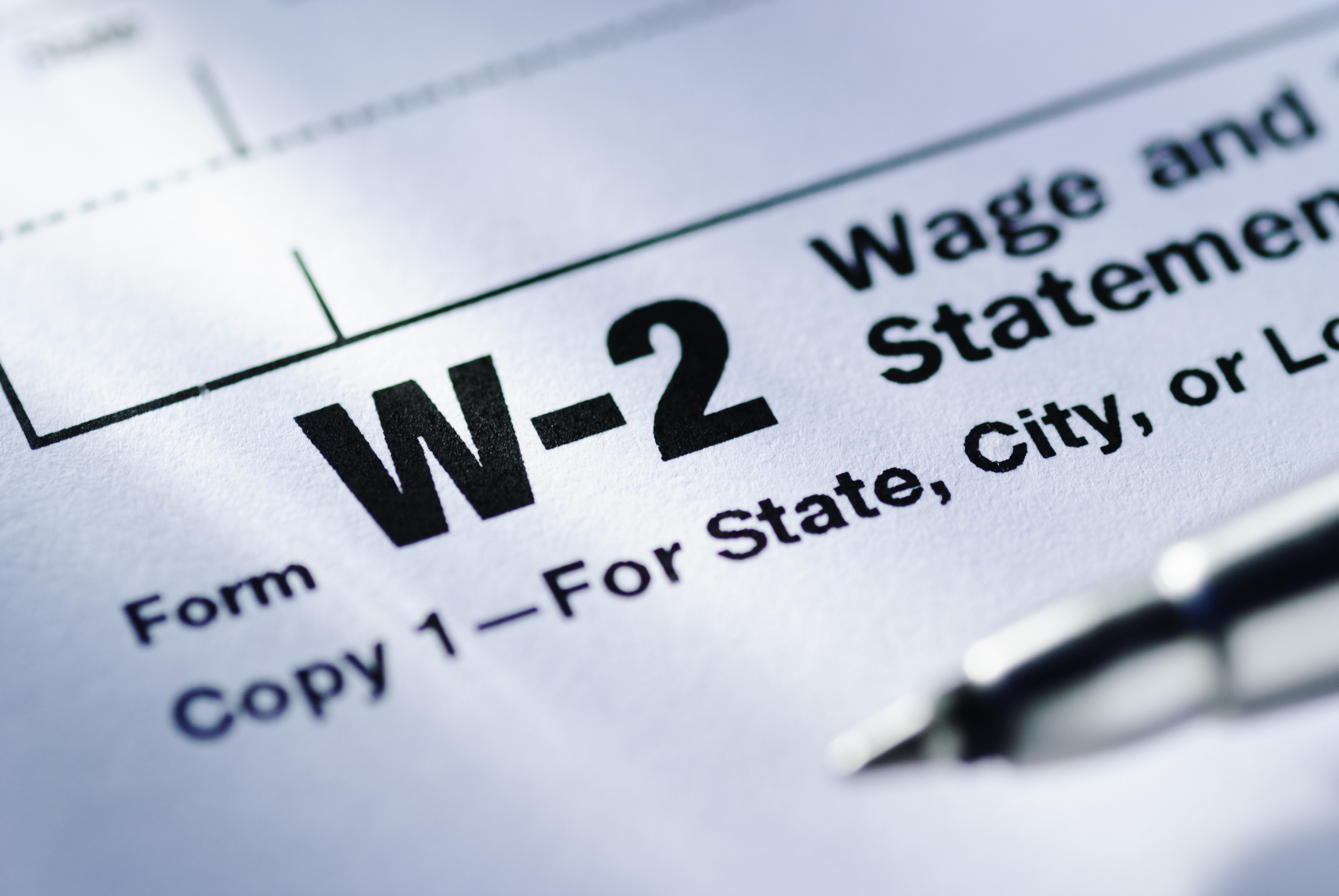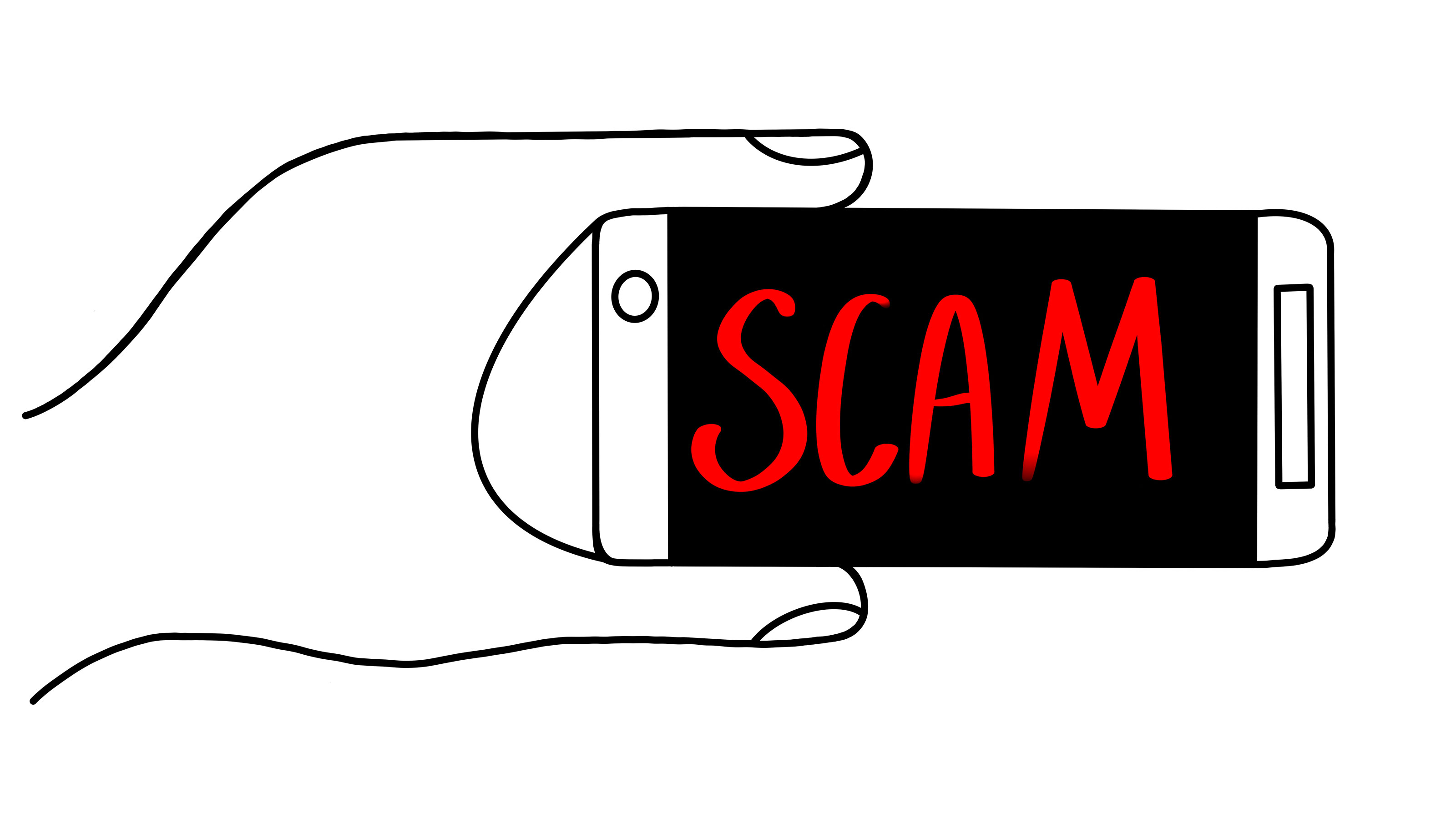7 Ways to Protect Yourself Against Tax Scams
Follow these steps to lower your risk of becoming a victim of identity theft or tax fraud.

Profit and prosper with the best of Kiplinger's advice on investing, taxes, retirement, personal finance and much more. Delivered daily. Enter your email in the box and click Sign Me Up.
You are now subscribed
Your newsletter sign-up was successful
Want to add more newsletters?

Delivered daily
Kiplinger Today
Profit and prosper with the best of Kiplinger's advice on investing, taxes, retirement, personal finance and much more delivered daily. Smart money moves start here.

Sent five days a week
Kiplinger A Step Ahead
Get practical help to make better financial decisions in your everyday life, from spending to savings on top deals.

Delivered daily
Kiplinger Closing Bell
Get today's biggest financial and investing headlines delivered to your inbox every day the U.S. stock market is open.

Sent twice a week
Kiplinger Adviser Intel
Financial pros across the country share best practices and fresh tactics to preserve and grow your wealth.

Delivered weekly
Kiplinger Tax Tips
Trim your federal and state tax bills with practical tax-planning and tax-cutting strategies.

Sent twice a week
Kiplinger Retirement Tips
Your twice-a-week guide to planning and enjoying a financially secure and richly rewarding retirement

Sent bimonthly.
Kiplinger Adviser Angle
Insights for advisers, wealth managers and other financial professionals.

Sent twice a week
Kiplinger Investing Weekly
Your twice-a-week roundup of promising stocks, funds, companies and industries you should consider, ones you should avoid, and why.

Sent weekly for six weeks
Kiplinger Invest for Retirement
Your step-by-step six-part series on how to invest for retirement, from devising a successful strategy to exactly which investments to choose.
You've probably started to receive some tax forms in the mail, and tax season officially starts January 30 when the IRS begins accepting returns. Even if you're not ready to start preparing your taxes, you need to start thinking about protecting your identity because thieves are looking for ways to steal it at tax time. In particular, they're after your Social Security number so they can use it to fraudulently file a return to claim a refund.
DOWNLOAD: The Kip Tips iPad App
Tax- and wage-related fraud often tops the Federal Trade Commission's annual list of identity theft complaints. And the IRS sees thousands of scams meant to trick taxpayers into revealing personal information. The agency says it has stepped up its efforts this year to protect taxpayers from ID theft, including increasing the number of screening filters to spot fraudulent returns filed by thieves to collect refunds that don't belong to them. (Read about more IRS anti-fraud efforts). However, taxpayers need to take their own steps to protect their identity and guard against fraud during tax season.
Guard your Social Security number. The IRS warns taxpayers not to carry their Social Security card or any documents with your Social Security number or taxpayer identification number on them. And do not give out these numbers just because you're asked. You will be required to provide your Social Security number in any situation that requires your identity to be verified (such as an application for credit or a license) or about which the IRS must be notified. Otherwise, be sure to ask whether the agency, business or organization has to have it.
From just $107.88 $24.99 for Kiplinger Personal Finance
Become a smarter, better informed investor. Subscribe from just $107.88 $24.99, plus get up to 4 Special Issues

Sign up for Kiplinger’s Free Newsletters
Profit and prosper with the best of expert advice on investing, taxes, retirement, personal finance and more - straight to your e-mail.
Profit and prosper with the best of expert advice - straight to your e-mail.
Monitor your mailbox. Make sure you receive all the W-2, 1099 and other tax forms you expect to get. If you fail to receive some, contact the company or financial institution that was supposed to send them to find out if and when they were mailed. If you suspect that any of these forms were stolen from your mailbox, contact the IRS Identity Protection Specialized Unit at 800-908-4490 extension 245.
Ignore e-mails from the IRS. The IRS doesn't send taxpayers e-mails or text messages. So do not reply to e-mails or messages supposedly from the IRS, open any attachments (which could contain viruses) or click on any links (which could take you to a fraudulent site). Forward all suspect e-mails to phishing@irs.gov.
Be wary of people claiming to be IRS agents. Don't reveal any personal information if someone calls and claims to be from the IRS. Instead, call the IRS at 1-800-829-1040 to see if an agent has a legitimate need to contact you.
Protect your refund. If you file your tax return by mail, use certified mail from the U.S. Postal Service to confirm that your return was received. And opt for direct deposit of tax refunds to avoid lost or stolen checks. The best way to make sure your refund check doesn't end up in the wrong hands is to NOT have a refund coming in the first place. To do so, use our tax withholding calculator to find out how many allowances you should be claiming on the W-4 form filed with your employer so you can get your money when you earn it -- not in a refund next spring.
Store sensitive information in a secure place. Store paper tax forms in a locked home safe or safe-deposit box. Electronic forms should be stored on a password-protected or encrypted external drive or disk. Use strong passwords that include upper and lowercase characters, numbers and symbols such as *, ! and & (see Protect Your Online Privacy With Unique Passwords). Never store tax files or any personal information on a cloud or Internet drive. And use a wiping application before getting rid of old computers that contain past tax information.
Be picky about your preparer. Many fraud rings front as tax-preparation companies and may offer to review returns for inaccuracies, but they can steal your information and redirect your refund, says Adam Levin, founder and chairman of Identity Theft 911. Also be wary of tax services that promise a bigger or faster refund. Verify the status of a preparer's license with the Better Business Bureau and IRS Office of Professional Responsibility. E-mail the IRS at opr@irs.gov with the full name of the individual or company and the address. Before handing over personal information, ask the tax preparer how your information will be stored and what his or her privacy policy is. This will help you feel more secure and will alert a less-than-reputable preparer that you're on the ball. Most importantly, scrutinize your prepared return and don’t sign it if it is incomplete or if the preparer has failed to sign it (paid preparers are required to sign your return and complete all preparer sections requesting their ID number).
Profit and prosper with the best of Kiplinger's advice on investing, taxes, retirement, personal finance and much more. Delivered daily. Enter your email in the box and click Sign Me Up.

Award-winning journalist, speaker, family finance expert, and author of Mom and Dad, We Need to Talk.
Cameron Huddleston wrote the daily "Kip Tips" column for Kiplinger.com. She joined Kiplinger in 2001 after graduating from American University with an MA in economic journalism.
-
 How Much It Costs to Host a Super Bowl Party in 2026
How Much It Costs to Host a Super Bowl Party in 2026Hosting a Super Bowl party in 2026 could cost you. Here's a breakdown of food, drink and entertainment costs — plus ways to save.
-
 3 Reasons to Use a 5-Year CD As You Approach Retirement
3 Reasons to Use a 5-Year CD As You Approach RetirementA five-year CD can help you reach other milestones as you approach retirement.
-
 Your Adult Kids Are Doing Fine. Is It Time To Spend Some of Their Inheritance?
Your Adult Kids Are Doing Fine. Is It Time To Spend Some of Their Inheritance?If your kids are successful, do they need an inheritance? Ask yourself these four questions before passing down another dollar.
-
 Holiday Tax Scams 2025: 'Tis the Season to be Wary
Holiday Tax Scams 2025: 'Tis the Season to be WaryTax Scams Navigating tax tricks of the holiday season may be daunting, but don't let that destroy your festive spirit
-
 How to Guard Against the New Generation of Fraud and Identity Theft
How to Guard Against the New Generation of Fraud and Identity TheftIdentity Theft Fraud and identity theft are getting more sophisticated and harder to spot. Stay ahead of the scammers with our advice.
-
 Tax Scam: IRS Warns Taxpayers Against Filing False W-2 Info
Tax Scam: IRS Warns Taxpayers Against Filing False W-2 InfoScams A new tax scam on social media advises lying on your W-2 to falsely claim credits and bigger refunds.
-
 PODCAST: National Taxpayer Advocate Erin M. Collins Wants to Help
PODCAST: National Taxpayer Advocate Erin M. Collins Wants to HelpFinancial Planning Your tax dollars are at work funding a government bureau to help you deal with the IRS. Strange but true! Also, the price of Amazon is going up.
-
 Con Artists Target People Who Owe The IRS Money
Con Artists Target People Who Owe The IRS MoneyScams In one scheme, thieves will offer to "help" you pay back taxes, only to leave you on the hook for expensive fees in addition to the taxes.
-
 Tax Refund Scam Targets College Students and Staff
Tax Refund Scam Targets College Students and StaffScams The IRS says there's a new phishing scam aimed at people with email addresses ending in ".edu."
-
 PODCAST: Taxes on Retirees — What’s New
PODCAST: Taxes on Retirees — What’s NewBudgeting In this episode of Your Money's Worth, senior tax editor Rocky Mengle talks about the latest update of the Kiplinger Retiree Tax Map. Will states with declining revenues make life harder on retirees? Also, the Biden stimulus plan and the hazards of patent scams.
-
 Watch Out for Stimulus Check Texting Scam
Watch Out for Stimulus Check Texting ScamScams Scammers are sending text messages that trick people into disclosing bank account information to get a $1,200 stimulus check.